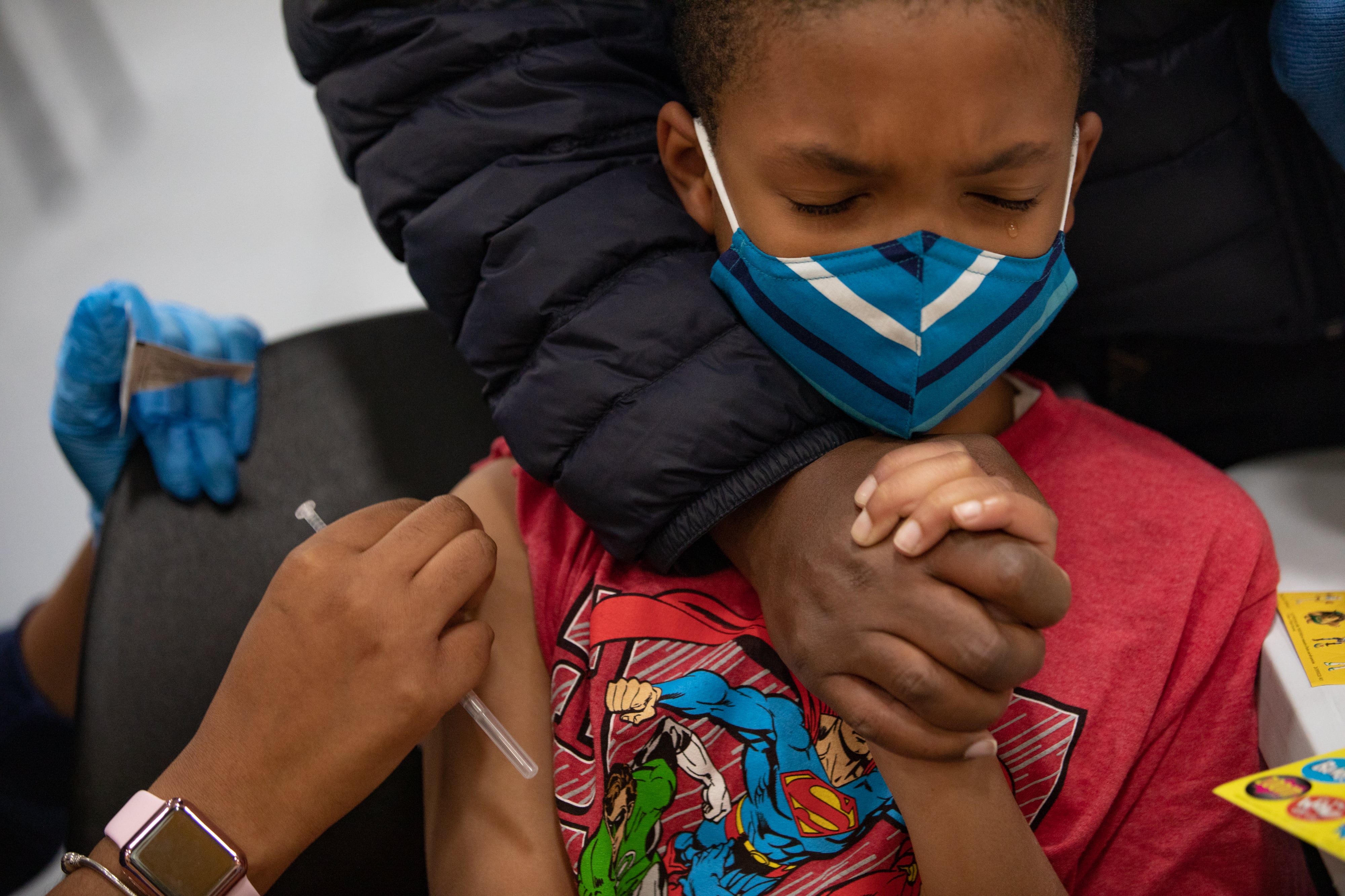Chicago Public Schools is not tracking which students or staff have gotten the updated omicron booster, even though district leaders and the city’s health commissioner are urging students to get boosted to stave off another COVID surge.
Chicago’s practice of not keeping tabs on updated booster vaccination by schools comes as parts of the country are experiencing an uptick in COVID-19, brought on, in part, by a new omicron subvariant known as XBB.1.5. This also comes as cities and school districts have largely eliminated most COVID-19 mitigations.
The district, which has struggled with vaccine uptake at predominantly Black schools on the South and West Sides, told Chalkbeat Chicago in response to a freedom of information request that it does not “comprehensively track student and/or staff COVID bivalent booster information,” Annie Righi, a CPS FOIA officer, said in an email response.
Chicago Public Schools continues to track the initial primary series, but not the boosters, according to a district spokeswoman.
According to the Centers for Disease Control and Prevention website, a person is considered up to date with vaccines after completing the initial series and the latest booster recommended by the federal agency.
Those ineligible for the booster are considered up to date if they’ve completed the primary series, according to the CDC.
Although the public school system is not tracking the data, city health department data show about 80,000 school-aged Chicagoans have received a booster as of Jan 2.
On Tuesday, Dr. Allison Arwady, the city’s health commissioner, anticipated the COVID risk level to rise in the coming weeks following the holiday break. Chicago schools return to class on Jan. 9.
Arwady said her department continues to monitor cases of COVID, influenza, and other respiratory infections. The flu, respiratory syncytial virus or RSV, and other respiratory infections have resulted in an increase in the number of hospitalizations among children in recent months.
“I do though, certainly, continue to have some concerns about COVID,” Arwady said.
In Chicago, the city’s COVID transmission rate remains medium, according to a CDC rating system.
Currently, the city’s seven-day average of laboratory confirmed cases is 452, according to city records.
If Cook County reaches a high COVID level, Chicago would issue a formal mask advisory, Arwady said.
School districts nationwide have leaned on vaccinations as a way to keep children and young people in school amid the ongoing pandemic. Still, districts, including Chicago Public Schools, have struggled with vaccine uptake at predominantly Black and Latino schools.
About half of all students enrolled in Chicago Public Schools — roughly 154,000 children — have gotten their initial COVID-19 vaccination series as of Jan. 2, data shows. But a Chalkbeat analysis shows vaccination rates vary widely by school, with predominantly Black schools lagging behind.
Majority Black district-run elementary and high schools had an average vaccination rate of 24.7% as of Jan. 2, up from 23% in September. Majority Latino district-run elementary schools and high schools averaged 49.4%, compared with 48.5% in September, according to a Chalkbeat analysis.
Both Black and Latino schools saw less than a percentage point increase since the start of the school year in the number of students vaccinated at district-run schools, data shows.
It’s unclear how many Chicago Public School students have received the updated booster. But city data show about 51,587, or 28.5%, of 12- to 17-year-olds and 29,943 or 14.2%, of 5- to 11-year-old Chicagoans have received a booster as of Jan 2.
According to the district’s FOIA office, vaccination information is entered into the system when self-reported or if the vaccine was received at a CPS vaccination site.
“The data that is collected is not broken down by booster versus initial vaccination, nor is data collected pertaining to which type of booster was administered,” Righi said in an email response.
Chalkbeat Chicago requested bivalent booster rates by school as of Dec. 13, but was told by the FOIA Department there were “no responsive records.”
In an email statement, Chicago Public Schools said it continues to promote the latest vaccine boosters and initial series and the bivalent vaccines at elementary school and high school/charter school events.
The district did not respond to questions about why it is not tracking the bivalent booster vaccine.
Thomas Wilburn contributed to this report.
Mauricio Peña is a reporter for Chalkbeat Chicago covering K-12 schools. Contact Mauricio at mpena@chalkbeat.org.







